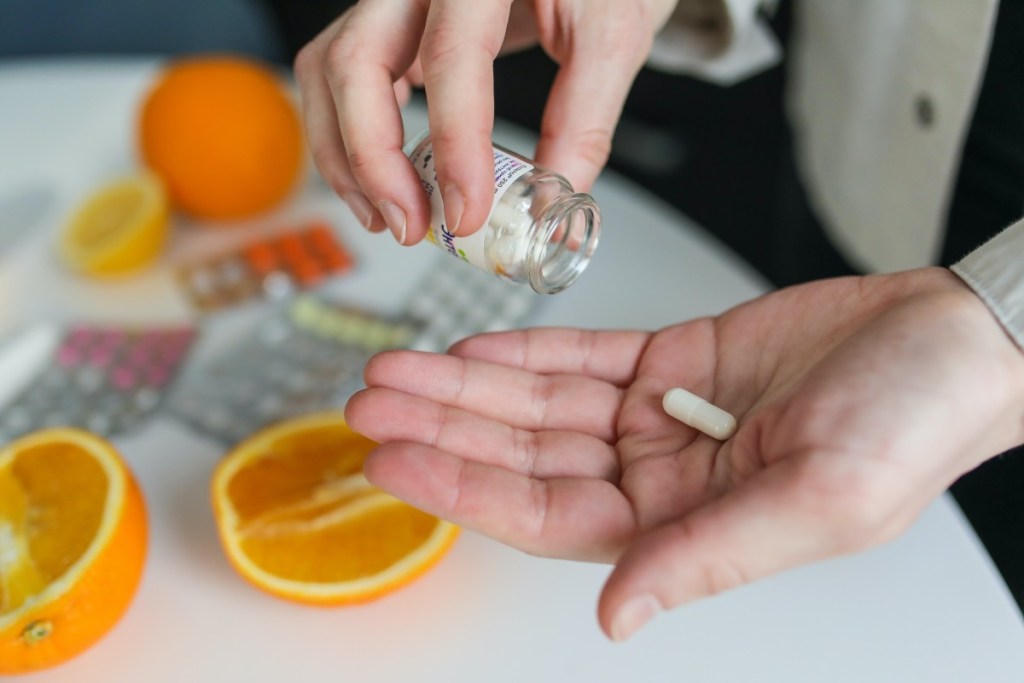Supplements of all kinds have been trending during the COVID-19 pandemic as people looked for new ways to boost their health, and green tea has been no exception. Consumers shelled out about $141 million for green tea supplements in 2020, according to one report.
Though these supplements are emerging, drinking green tea for health is nothing new. It has caffeine, which can boost energy and memory. Drinking green tea may also help the body break down fat and lower the risk for heart disease, according to research.
However, will taking a green tea dietary supplement really help, or should you stick to drinking it?
We did the research and can now spill the tea.
What are green tea supplements?
Like the beverage, a green tea dietary supplement is derived from the Camellia sinensis plant. The supplements contain significant amounts of polyphenols, or antioxidant-rich compounds, and caffeine.
They generally do not require a prescription, but a primary care physician or complementary and alternative medicine practitioner, such as a licensed acupuncturist, may recommend taking one. You can find them in tablet form at your local pharmacy, supplement aisle of a grocery store, and health food stores. They are also readily available online.
What are the purported benefits of taking these supplements, and what does the science say?
Green tea is often considered the beverage-version of a superfood, so the interest in consuming it in supplement form isn’t surprising. Here’s what the science says about some of the most commonly touted benefits.
Heart health
Cardiovascular disease is common and can be fatal. Diet and exercise are considered two critical tools in a person’s prevention toolbox, and taking a green tea dietary supplement may have a place, too. One 2012 study reported that green tea extract lowered blood pressure in patients with hypertension. A 2020 study also found green tea supplementation reduced blood pressure during a short-term trial. Researchers noted that longer-term trials are necessary to assess the benefits of taking these supplements better.
Energy and brainpower
Coffee is a popular way to get a jolt of energy and improve cognitive functioning, but not everyone likes it. Since green tea supplements contain caffeine, people may wish to take them as an alternative. The National Institutes of Health (NIH) says research has yet to prove that green tea supplementation could prevent a decline in alertness or boost mental capabilities. Other experts agree, suggesting people take a walk or snack on nuts to boost energy instead.
Weight loss
Green tea supplements contain high amounts of the antioxidant-rich compound known as catechins and moderate caffeine levels. Catechins and caffeine could team up and play a small role in weight loss. However, a 2015 study said long-term use of these supplements did not affect fat absorption or body composition in adults.
The NIH writes that green tea extracts haven’t proven to aid in weight loss significantly.
Skin health
Taking a green tea supplement may be a valuable part of your skincare routine. Research has shown that green tea extract boasted anti-aging powers. Other studies have pointed to its anti-inflammatory properties and ability to reduce acne-related red bumps.

What safety precautions should I take?
The benefits of green tea supplementation aren’t conclusive, but you should understand a few risks.
The NIH says that it’s uncommon for people to experience liver issues after taking these supplements, but it does happen. Symptoms of liver problems include dark urine, abdominal pain, and jaundice. The NIH also cautions that high doses of green tea may reduce the effectiveness of nadolol, a beta-blocker used to treat high blood pressure and heart conditions. People with pre-existing conditions or taking any medications should speak with their doctors before starting to supplement using green tea.
Green tea supplementation may help with heart disease and some skin conditions. However, the evidence on using it for weight loss, focus, and energy are mixed. What’s more, the supplements can cause liver damage in rare instances and may make some medications less effective. The NIH says there’s been some promising research on green tea supplementation but not enough to draw any definitive conclusions. Some experts say it’s best to stick to drinking green tea based on what we currently know. Talk to your doctor before starting any new supplement and again if you notice adverse symptoms, such as dark urine, a potential sign of liver issues.
BlissMark provides information regarding health, wellness, and beauty. The information within this article is not intended to be medical advice. Before starting any diet or exercise routine, consult your physician. If you don’t have a primary care physician, the United States Health & Human Services department has a free online tool that can help you locate a clinic in your area. We are not medical professionals, have not verified or vetted any programs, and in no way intend our content to be anything more than informative and inspiring.




